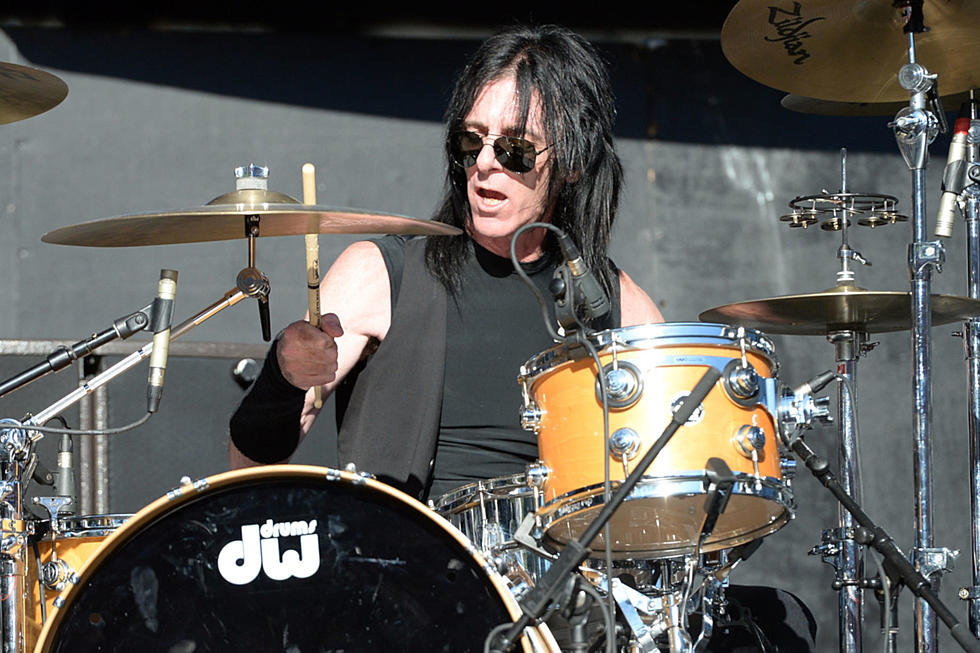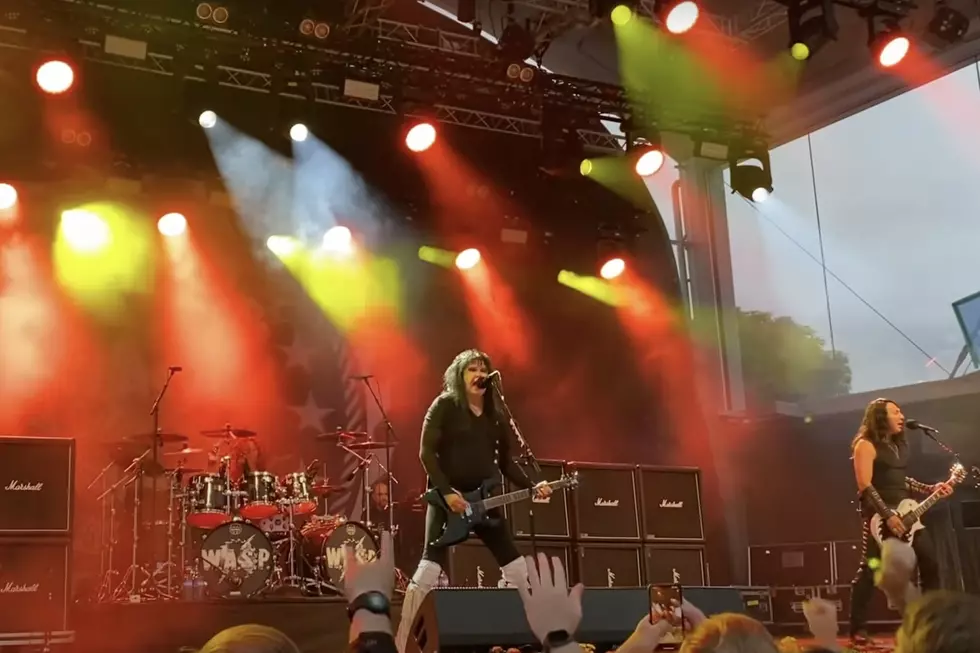W.A.S.P. Frontman Blackie Lawless Delves Deep Into His Faith + New Album ‘Golgotha’: Exclusive Interview
With about 30 years of music under their belt, W.A.S.P. have released their 15th studio album, Golgotha. We had the chance to chat with the band’s frontman Blackie Lawless about the brand new music as well as his resurgence of faith, being a born-again Christian and how this has affected creating new music.
What does the title of the new album Golgotha mean to you personally?
That’s a good one. Coming from a perspective of being a born-again Christian, it’s the center of my universe. Without that we have nothing.
In the heavier genres of music many fans don’t always gravitate towards religion or the idea of religion and judge it in a different way.
As it should be because there’s a huge difference between religion and faith and I agree with them whole-heartedly.
Many fans don’t always understand when their favorite musicians find faith. How would you say being a born-again Christian affected the overall creative and recording process of this album?
Certainly, lyrically everything is written from the eyes of my faith, everything is through that filter. You’re also talking about a genre that, in general, is obsessed with the idea of God and/or the Devil. Jazz, pop, there is no other genre that is absolutely obsessed with it as this genre is. The Bible tells us, “The truth has been placed in the hearts of all men.” In other words, people know what the truth is. What I see is people in the search of the truth. They’re all on a journey, the people that are attracted to this genre are people who are really a lot more in tune with it than they think they are.
I’m speaking from a direction where I know what I’m talking about, I was in the church until I was in my late teens and when I left and came to California I went as far away as you could possibly go. I ended up studying the occult for three years. I understand what they’re looking for, they’re looking for the same thing I’m looking for. I’m at a point now where I’m bilingual: I can speak their language. They can’t necessarily speak my language but I can understand where they’re coming from.
When we say religion we kind of use that as a general term and when people have the resistance that they have to it they have every reason to feel that way. That’s part of what drove me away was the indoctrination of men that I received – it’s man’s indoctrination. Now from my perspective, my faith is based on Jesus Christ and the Bible, nothing more, nothing less. I don’t want to hear anybody telling me their ideas or their interpretations or interjections of what they’ve put into the Bible like telling me I can’t eat meat on Friday or I got to go and worship somebody’s old dead bones somewhere. That’s not in my Bible.
There’s a lot of it, every organized religion has it, every organized faith has it. That’s not where I’m coming from. When I left the church and then I studied the occult, I walked around for 20 years and thought I was mad at God. I realized after 20 years I was not mad at God I was mad at man for that indoctrination I received. For me I had to settle this issue once and for all because I am not going to walk around with this anxiety of what’s going to happen to me and where I’m going, I got to know the truth. I got the Bible and I started reading and I thought I was going to disprove this thing once and for all.
Everyone says the Bible is written by men but the Bible says it was men who were directly inspired by God. But I didn’t believe it for a minute. So I start reading and I start discovering and you have 66 books written by 40 different authors spread over three different continents, in three different languages, over a 2,000-year period. Most of the authors did not know each other, had no knowledge of each other but yet I see consistently that they’re not just answering each other’s questions, they’re finishing each other’s sentences. It was mind-boggling, the deeper I got into it and one day it hit me like a shot. I’m reading the living word of a living God. After that I was just scratching the surface then when you get even deeper into it, it’s beyond comprehension.
I cannot say it strongly enough. It is beyond impossible that it could’ve been written by men. I’m a writer and even the writers that I know that I admire – I look at how we write, I know what our limitations are and like I said it’s so far beyond our comprehension.
With a six-year gap between Babylon and this new record, how did making Golgotha differ from working on other W.A.S.P. albums?
That gap, we originally started in Spring of 2011 and we went and did the 30th anniversary tour in 2012 and then the following May I broke my leg pretty badly and we lost the rest of that year so if you put it all together it’s about two years of work spread out. Those gaps in time, be them planned or unplanned, ended up being a good thing because it gave us the luxury of time I’ve never had before. We were talking about it a couple of months ago when we mixed the record. Had those gaps not happen this record wouldn’t have turned out the way it did. It gave us the ability to sit back and really question it and said, “Is this what we want to do? Is this what we want to sound like?”
With your faith and being a born-again Christian, what did the other members of W.A.S.P. think?
They’ve been very generous. I would just say that their generosity has been great, allowing me the freedom to say the things I’ve said. I also think that they’re objective enough to know. Our bass player Mike [Duda] said to me the other day, “Hey a great song is a great song.”
It’s been 30 years since The Last Command was released. What do you remember most about creating this album?
I think quite the opposite of what we’re talking about right now because that record was done and finished – pre-production, recording top to bottom in seven weeks. It takes us that long to tune our guitars now. [Laughs] We’re very methodical, the way we do records now. One of the best investments I ever made was building a studio when we did Crimson Idol, we literally built a laboratory where we go in and you don’t have to watch the clock or anything. You’re just doing it at your own pace, we’ll spend days sometimes and we don’t even play a note, we’re just talking about the idea of a song and how you can turn it inside out and we’ll try this and that. It’s not that we’re screwing around, it’s that we’re talking about what we’re doing, it gives us a luxury of taking this methodical approach.
We’re also at a point in our careers where we don’t have to make records that we don’t want to. I would think quality would be better than quantity – I know the obvious answer is to have both well you’re not going to get both. On top of it there’s only one way to make an expensive-sounding record, you got to invest the time and money whether this is a good record or not – I’ll leave that up to you guys. One thing I do know is that sonically speaking this new record, there’s nothing better out there right now. I know a lot of people don’t want to spend the money and the dime on it now because there’s not the return that it used to be and I understand that. You’re dealing with a legacy too, so if you’re going to do it, try to do it as best as you can.
With the W.A.S.P. world tour in support of Golgotha, what is one non-electronic item, you must have on the road with you?
My first reaction, I was going to say the Bible because that’s where my strength comes from. You’re probably looking for something that is a little more pedestrian I guess. Wow, I can’t think of anything else. Being out there is a strange existence in one sense but I don’t know how many years of my life I’ve actually spent on the road so it ends up being an extension of home. It’s very normal to me, what can I tell you I’ve gotten used to it. [Laughs]
Our thanks to Blackie Lawless of W.A.S.P. for the interview, be sure to check out the new album Golgotha via iTunes here.
The Top 50 Heavy Metal Albums of All Time
This Day in Rock History: September 26
More From Ultimate Classic Rock









